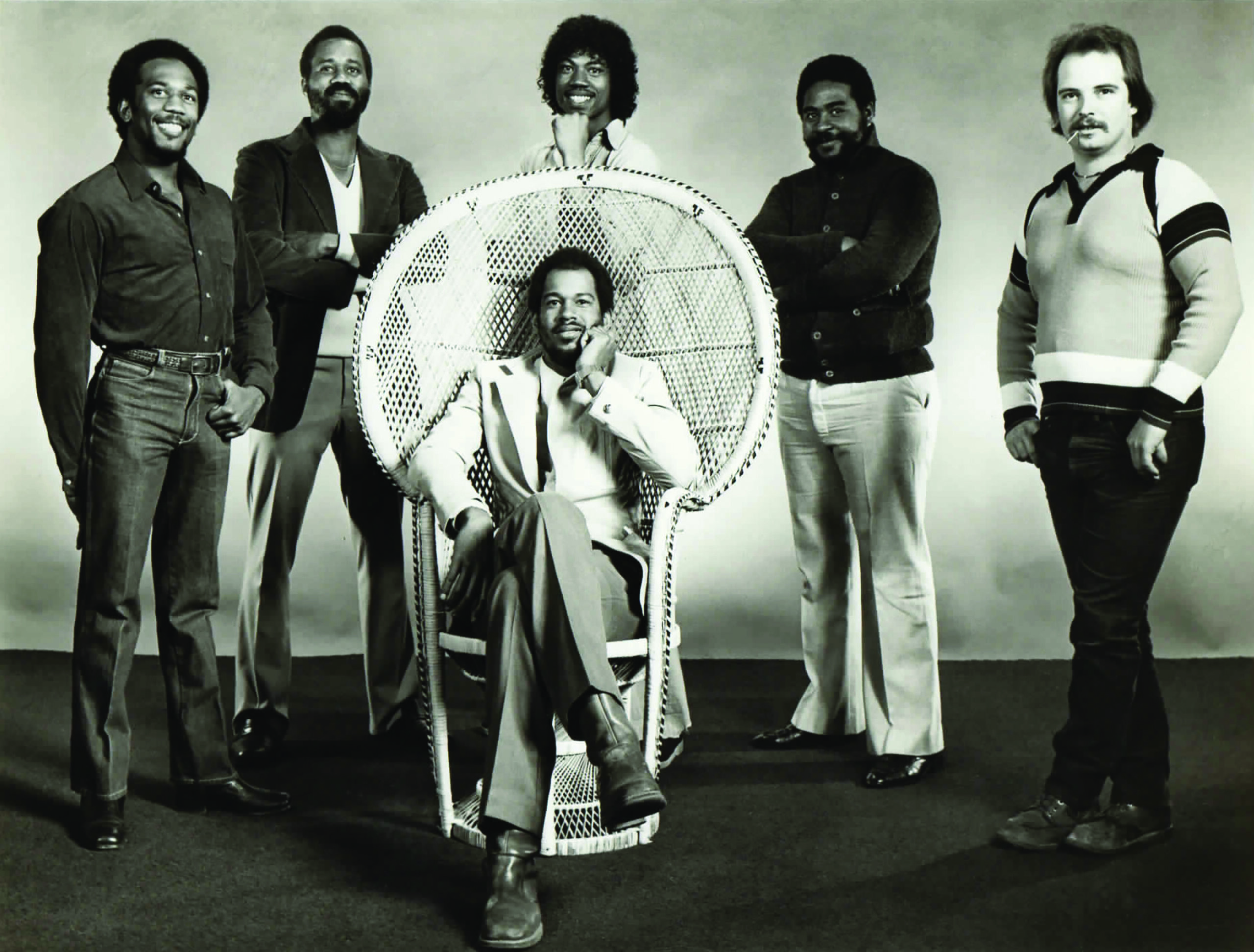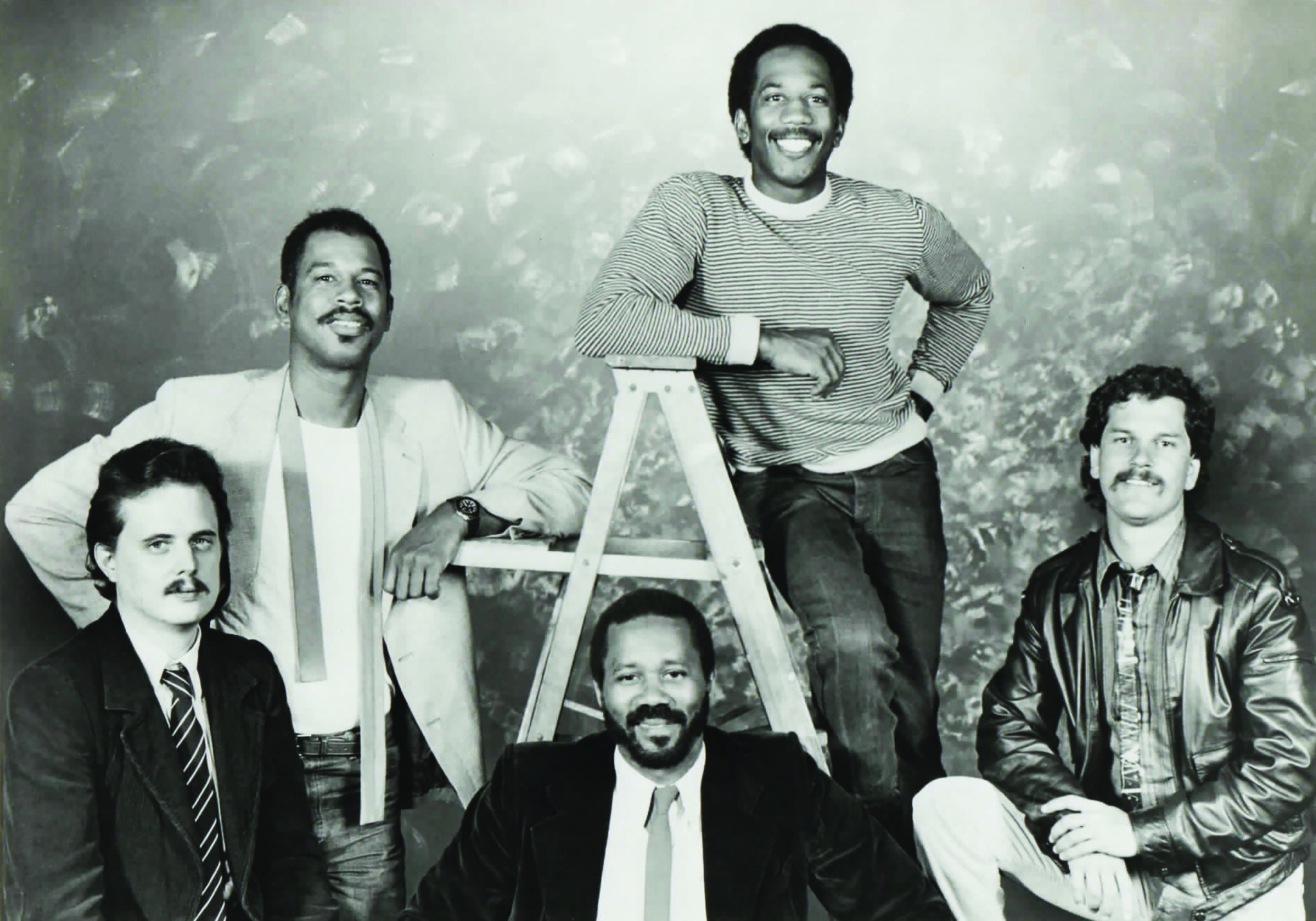
“[The studio] was in a car wash. Or an adjacent building where they stored the soap,” says Wilbur Niles, clearing up details through bursts of laughter. “I mean, we recorded at night, after the car wash closed. You couldn’t do anything on a Saturday morning when cars were being washed. I remember the concrete ceiling needed softening for the sound, so we set the drums up under a big beach umbrella.”
It’s an unlikely spot for a recording studio. Nevertheless, between boxes of suds and wax, in a nondescript room in Akron, Ohio, one obscure couple recorded a future lost classic. Plotting a course through silk-smooth, hook-laden jazz, funk, and R&B — assisted by a punk band’s road crew and several hired musicians — 1979’s Thrust remains the only album credited to McNeal & Niles.
More from Spin:
- Tedeschi Trucks Band Plots Largest Headlining Shows This Fall
- Tears for Fears Touring This Summer With Cold War Kids
- Seymour Stein, Sire Records Co-Founder Who Signed Madonna and Talking Heads, Dies at 80
The release failed to make much impact — just 500 copies were issued before the work faded into obscurity — and its successor, Wilbur Niles & Thrust’s Thrust Too, fared little better. But today both are considered collector’s items among crate-digging hip-hop and electronica fans, signposted by artists like Daphni, Pete Rock, and Jay Dilla via samples or references. This reappraisal has driven high second-hand demand, with original pressings selling for up to $1,600. Hence the Toronto label We Are Busy Bodies now reissuing Niles’ full back catalog.
When SPIN first gets hold of Niles, it’s early morning in Cleveland, where he grew up and spent much of a career now spanning almost seven decades. Although he later lived in Florida, he’s back in town undergoing medical treatment, staying with his daughter, and speaking to us from her basement. Though the intent is to keep our conversation brief, we end up traversing his life and work — even back to his days before Thrust.
In soft, reflective tones, Niles recounts playing baritone sax and bass clarinet in high school band. He also talks about the impact Kent State University had on his interest in different cultures and ways of being. (He was a freshman the year the National Guard fired on student activists.) Then there were spells touring with B.B. King and The Spinners. As we jump across this timeline, he exudes a genuine warmth and openness, eager to open up about any era. You can almost hear the smile on his face as we finally get to that first LP.
“You may know the famous jazz player Walter Blanding. His parents, Walt and Audrey, had a good reputation [as musicians] — both were at the Cleveland Institute of Music. They asked me to join, and it was the first time anyone asked me to play jazz in the 12 years I’d been a musician,” Niles recounts. “My girlfriend, Machelle [McNeal], was living with me at the time and sat in on a session. She sang, and was really impressive. I mean, she was always impressive. A showstopper. They asked her to join, so both of us were in the same group. Then Walt and Audrey decided their future was in New York.
“Machelle and me realized we wanted to do more than just accompany,” he continues. “Cleveland [in the mid-late-1970s], I’m not even sure it had a full-time jazz club. Clubs had jazz nights, usually on an off-night — Tuesday, Sunday, you know. We were wondering, I mean, where is this going? So we found someone to play bass and started cutting demo tapes at a studio run by Devo’s road crew… I met those guys when they asked me where to buy professional tape reels, [and] they offered the studio.”

By this point, Niles had been clocking up miles with different outfits for years, including on the Chitlin’ Circuit, an eastern, southern, and midwestern U.S. tour route run by and for Black artists, industry figures, and fans, prominent from the early 20th century well into the 1970s. But he’d also written a huge songbook of his own while on the road, preferring to spend nights in a hotel room with guitar, pen, and paper when “everyone else was out chasing girls, going to the after-hours.” When his opportunity came, he was ready — even if the space itself was a little odd.
“People always assume I knew Devo. I never met them, but I did go to the club in Athens they used to play,” he continues, before shining some light on how the band’s crew, well-versed in New Wave and post-punk, gelled with his jazz and funk. “I mean, they were musicians too. They knew what music was supposed to sound like. They were limited by the equipment at the car wash, but they knew how to record.”
Inspired by this meeting of minds, Niles would name one of the tracks “Punk Funk.” A sweaty, low-slung workout packed with his rhythmic guitar licks, it contrasts the naive synth work and emotionally rich six-string solos he plays on opener “Ja Ja.” Overall, just a handful of the original demos made it onto Thrust, including “Hypertension,” the first track Niles wrote. But, listening to his passionate, if often vague, recollections, it’s impossible not to hear how much personality wound up on the album.
Its rough and ready sound, he explains, captures the magic of the studio and team involved, immortalizing not just the tunes, but the place and everyone inside it — from engineers Ed Barger and Sheldon Greenberg to the infectious bass grooves of Don Wade, Norman Crumb’s engine-room drums, and the percussion of Willie Taylor. Then there’s McNeal, who, despite never playing jazz before, let alone recording, shines on an array of keyboards, including the ARP Odyssey, MiniMoog, Polymoog, EML 500, Rhodes and Wurlitzer pianos, and Hammond B3 organ.
As if using our conversation to pay tribute, Niles points out her instrumental abilities played second fiddle to voice. McNeal could “cast spells over any crowd,” but lack of confidence stopped her gracing the album with more than backing vocals. She overcame those nerves for Thrust Too’s strutting finale, “Survival of the Funkiest” — and her influence on the first record can be felt in more ways than the music. When we ask what happened to his former studio partner (and, later, wife), his response resonates, even if it lacks detail.
“I had no money. Squat. But I had ideas, and, no matter the idea, my girl was behind it. That was our relationship. Machelle always had confidence in me,” Niles says with an air of lamentation. He lets out a sigh, admitting he’d been thinking about their separation in anticipation for our call. “I don’t know what happened with us. We married, then never really played together… I can’t say this went wrong, or I left for another woman. It was working, then it wasn’t. But I know I picked the right person.”
Thrust was eventually released on Ohio’s folk-oriented Tinkertoo label — under an agreement management would not pay for any reproductions, leaving costs to the artists — and its low key reception, along with that of its follow-up, contrasts the vision many recognize in both today. Something McNeal clearly saw back then. According to Niles, subsequent albums — like his personal favorite, 1987’s Re-Entry, and the post-millennium Liftoff — shifted more copies when they landed. But his formative effort, with a raw sound fueled by the circumstances behind it, still seems to hold a certain romance for the man responsible.
Thrust is the memoir of an energy that cannot be recaptured, whether that’s due to a lack of time machine or available car wash. And our conversation closes, we ask how he feels knowing his first album now enjoys cult status within very different musical scenes. His answer speaks volumes.
“It seems a little strange. A lot of artists complain about this kind of thing, saying people are stealing their music. Argh! I’m glad my music is good enough to steal. I’m flattered,” he says, another bout of infectious, deep-belly laughter rising up, switching the mood from somber back to jovial.“I like to say my albums are my children — all the same in my eyes. That’s bullshit… But do you want to know what my best song is? My best song is my next song. Even if I wasn’t working on anything right now, my best would still be my next.”
To see our running list of the top 100 greatest rock stars of all time, click here.
The post Seymour Stein, Sire Records Co-Founder Who Signed Madonna and Talking Heads, Dies at 80 appeared first on SPIN.
